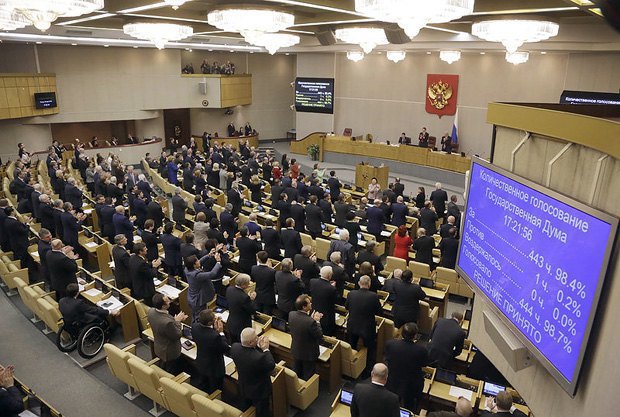
The Crimean story sharply picking up in the information field is not a mere coincidence. Everything that is happening today around the peninsula should be seen as part of a particular technology, which is aimed at securing the militarily occupied land as that of Russia.
As is known, Russia will be holding the regular elections to its parliament, the State Duma, on 18 September. For the first time, the "elections" will be held in the occupied territories, in Crimea: four MPs will represent the peninsula in Moscow.
But the situation in Crimea is not easy: the promised paradise in Crimea fell through, United Russia rapidly lost credibility (especially in Sevastopol, which for a long time was managed by recently dismissed Sergey Menyaylo). Well, and after all, "there is no money, but you take care".
Therefore, Russian authorities returned the long-tested mobilisation technique called a "besieged fortress" to the current agenda of Crimea. This is when you are surrounded by enemies (NATO/ Banderites/Right Sector/Ukrainian subversive groups) and only Russia can save you.
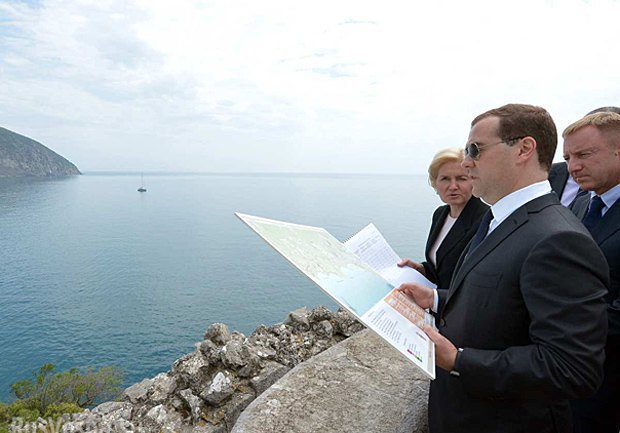
So in addition to the constant internal "threat" in the form of Crimean Tatars, there are now "Islamic State camps in Kherson Region". Drunk brawls between the servicemen of the FSB and the Russian Defence Ministry as well as the shooting of Crimeans by the Russian military turned into an "attack by Ukrainian reconnaissance and sabotage groups".
No wonder that after the incident, the occupying authorities of Crimea prevented OSCE observers from visiting the peninsula, while the "saboteurs" are going to be tried in Crimea - to avoid a leak of information and unnecessary questions, thus bringing the information special operation to completion.
However, even in such a closed society, the Russian Dozhd TV's journalists managed to find a proof of the lawlessness of the Russian military, which only confirms the roughly cobbled provocation with a "Ukrainian reconnaissance and sabotage group".
Therefore, Putin's visit to Crimea on 19 August is another step in the continued implementation of the pre-election scenario, which aims at mobilising the Crimeans (including as far as turnout is concerned): at the operational meeting with the permanent members of the Security Council at Belbek airport, the Russian president promised Crimea "additional security measures".
"We have gathered today in Crimea for a reason. At today's meeting we are to discuss and adopt additional measures to ensure the security of the Crimean peninsula, the Crimeans and holiday-makers," Putin said in his opening remarks.
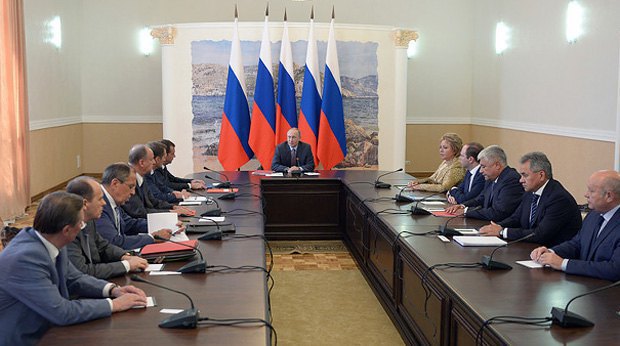
Thus, ahead of the elections to the State Duma, Russia continues to scare Crimeans with "dangerous Ukraine." Well, it worked once, before the "referendum" of 16 March 2014 - and it should work again.
The next stage of the scenario will be implemented after the elections. Here the main role is played by international observers, who are to approve the "feast of expression" at the elections in Crimea.
Clearly, no decent organisation will recognise the Crimean elections - Ukraine has asked the OSCE and Germany as the chair country, as well as other relevant international organisations, to refrain from any steps that could be interpreted as recognition of any other status of Crimea rather than an integral part of Ukraine. In particular, to refrain from any action which would facilitate the presence of international election observers, including members of the OSCE and the OSCE Parliamentary Assembly, in temporarily occupied Crimea.
In addition, Kiev has warned that all international observers who go to Crimea will be held responsible for violating the Ukrainian legislation, and any illegal visits to Crimea will be investigated by Ukrainian law-enforcement agencies.
By the way, cases will also be opened against deputies who will make it to the State Duma and even against candidates for conducting illegal campaigning. In this context, the Parnas party acted in a forward-looking mane when it first requested a Kyiv permission to campaign, and after it was turned down (completely expectedly), it decided not to break the law and not to campaign in Crimea.
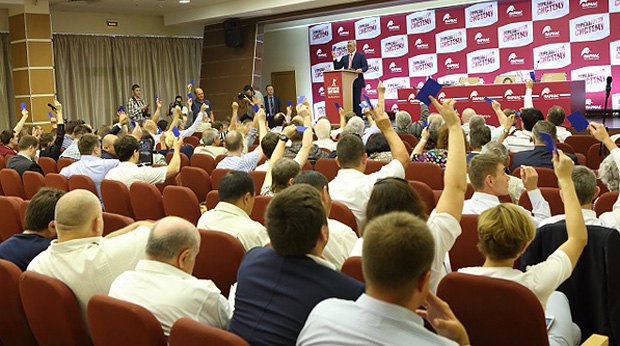
In this situation, Moscow will traditionally bet on marginal foreign politicians whom it will bring to Crimea from all over the world. Also, hopes are pinned on the CIS observation mission. However, there is no solid confidence in the loyalty of the CIS allies - even the most loyal partners of the Kremlin have not recognised Crimea as part of Russia until now. Apparently this is why the preparations for the formation of the CIS observation mission have until recently been kept secret. LB.ua wrote about this earlier.
After that article was published, Kyiv sent an official note to the CIS Executive Committee in Minsk, in which it protested against sending an observation mission to the elections of the State Duma in annexed Crimea. "Any participation in the so-called observation of the electoral farce will be regarded as an unfriendly act while any visit to Crimea and Sevastopol in violation of the law of Ukraine ... will entail responsibility", the Ukrainian Foreign Ministry said in its message to the CIS countries.
In such circumstances, it is obvious that the results of the pseudo election in Crimea will be insignificant, they will not be recognised either by Ukraine or by the international community. But the presence of representatives of the illegally occupied territory in the State Duma will call into question the legitimacy of the whole lower chamber of the Russian parliament, and not just its Crimean part. Moreover, the Kremlin will try to ensure that the newly elected Crimean deputies receive international recognition. And here the West should decide whether it is going to swallow the continuing mockery of international law by Russia.
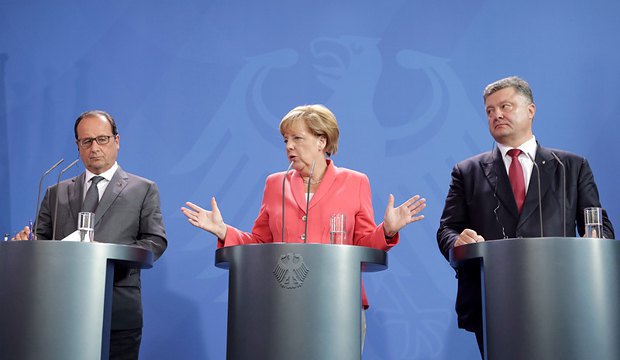
Europe, the United States and the civilised world must prepare now to answer four (right by the number of deputies elected from Crimea) main issues that arise in connection with the elections to the State Duma:
1. Will these four deputies who will represent occupied Crimea in the State Duma be recognised?
2. Will the Western countries prevent their inclusion in the Russian parliamentary delegation to the PACE, the OSCE and the BSEC?
3. Will those elected in Crimea be put on the list of persons banned from entering the EU?
4. Does the West understand that the recognition of such a composition of the State Duma will mean legitimising the occupation and annexation of Crimea?
The West's public response to these questions (and most importantly - relevant action) will be a test of democracy and respect for international norms they have established themselves.
The article was first published on the Yevropeyska Pravda website.








